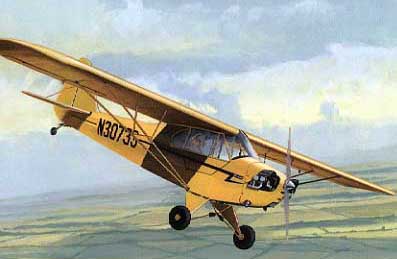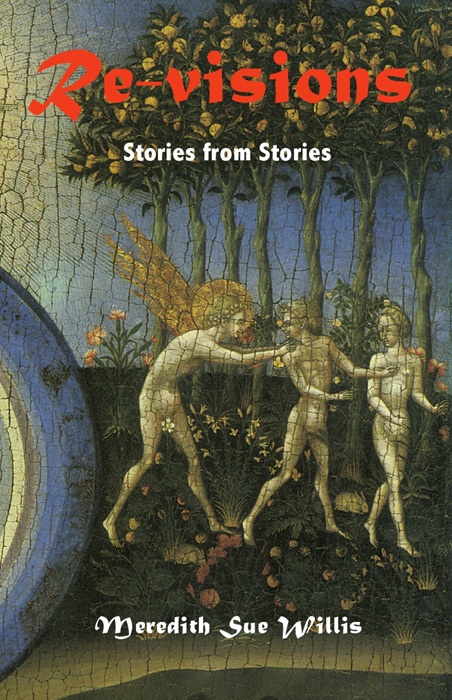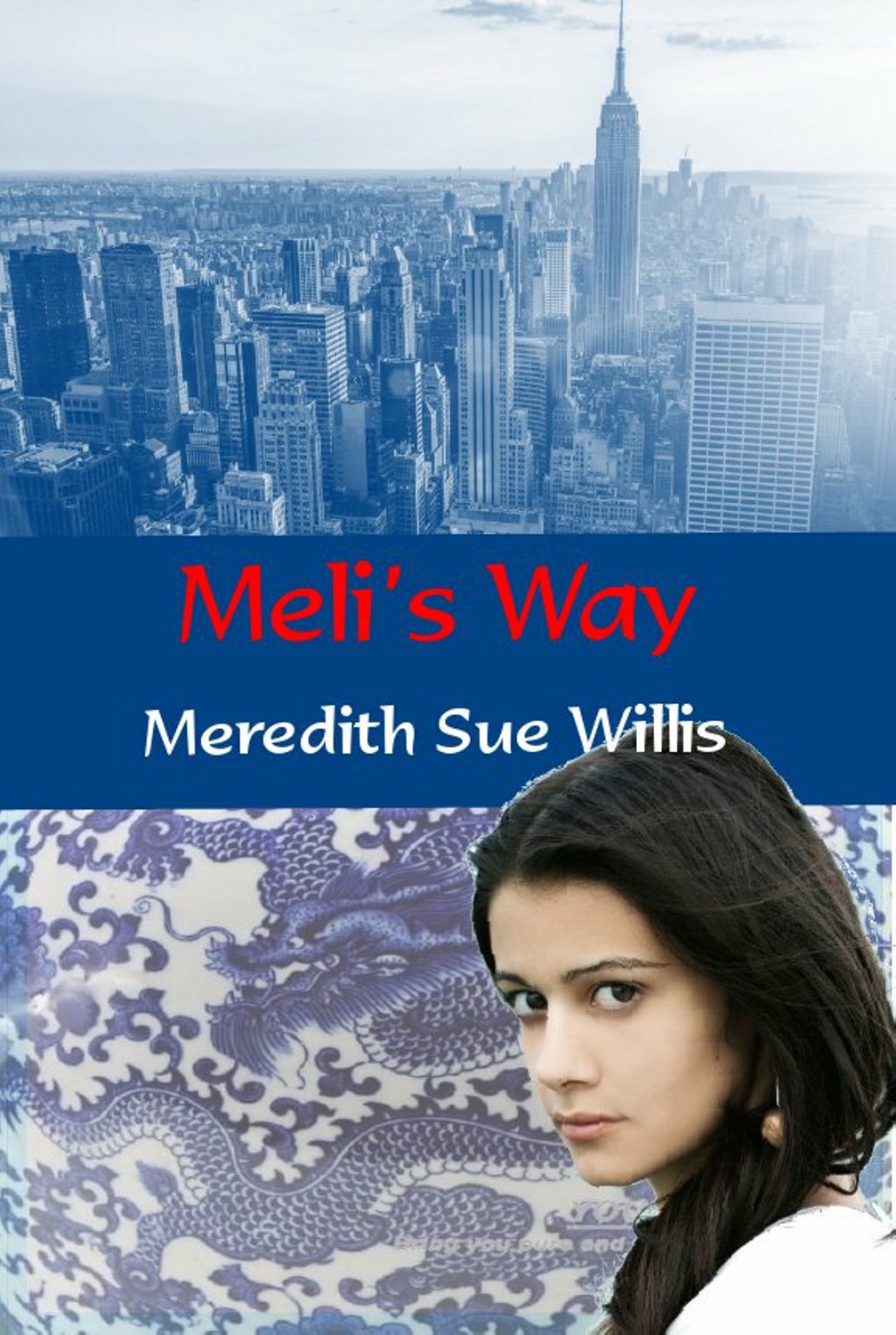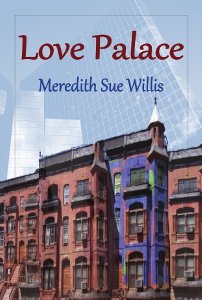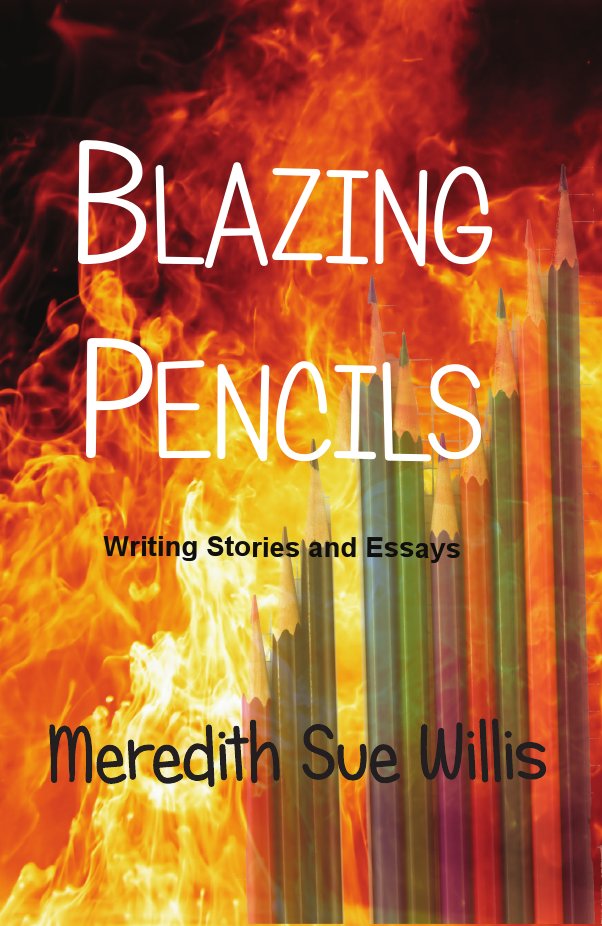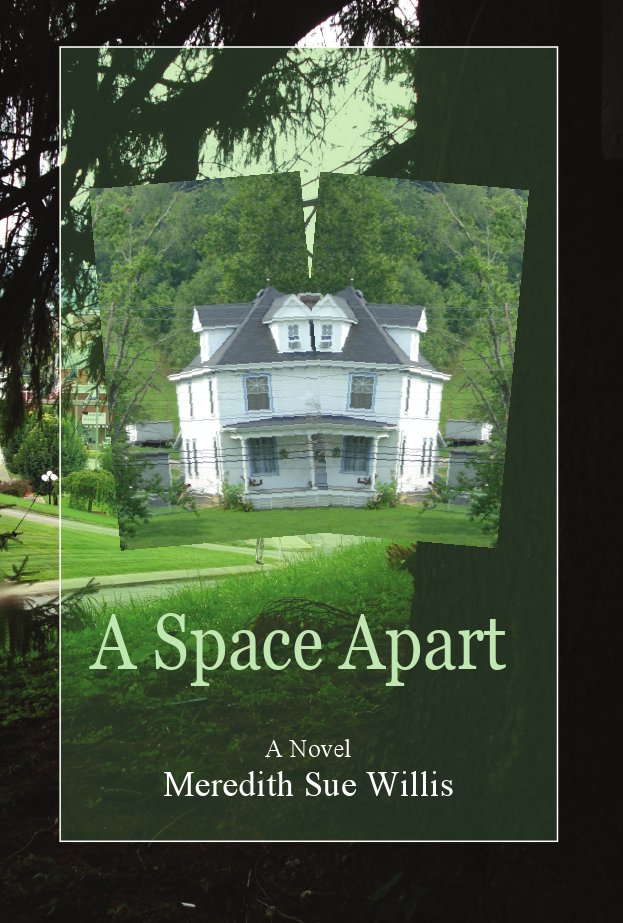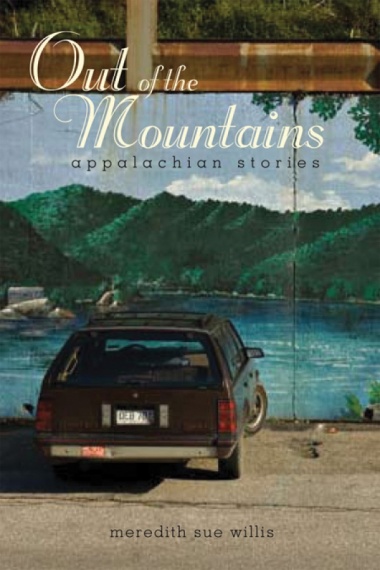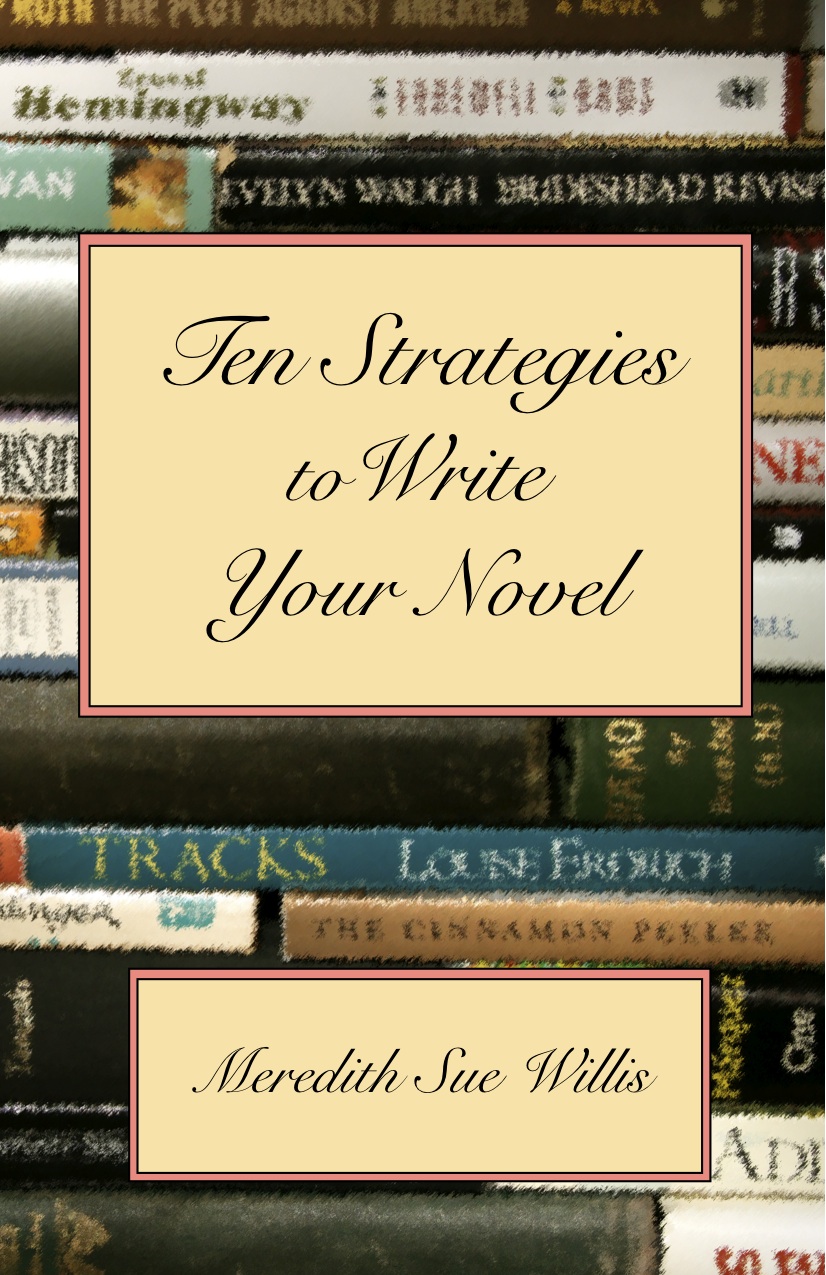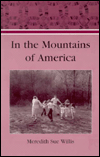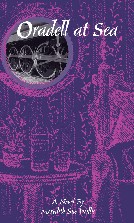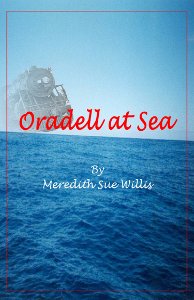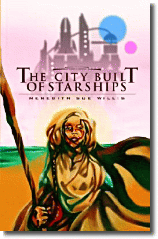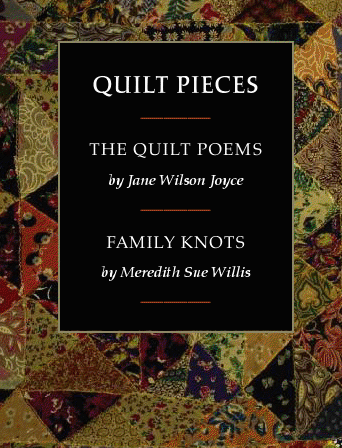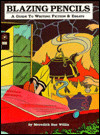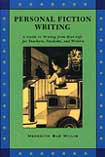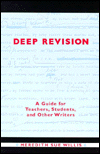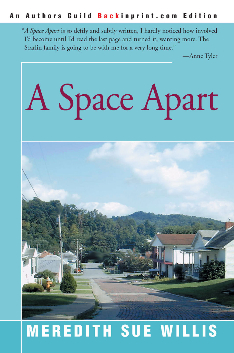Writing Exercises 101 - 120 are on this page.
Exercises 1- 20
Exercises 21- 40
Exercses 41 - 60
Exercises 61-80
Exercises 81-100
Exercises 101 - 120
Exercises 121 - 140
Exercises 141 - 160
Exercises 161 - 180
Exercises 181 - 200
Exercises 201 - 240
Exercises 241 - 260
Exercises 261 - 300
Exercises 301 - 330
Write a description of something small enough to hold in your hands without telling what it looks like. That is, if it is an orange or a hot roll, what would it be like if you were blind? You would feel its nubbly roundness (or its soft crispness) first, then get a whiff of how it smells, maybe even a faint squooshing sound as your rip it open...
Exercise #102
Write a personal essay or short short story that begins "Panhandling can be fun...."
Exercise #103
WRITE a detailed description of someone at work. This is best if it’s not a family member or someone you know really well. It might be someone who you buy coffee from every morning, or maybe friend’s great uncle who you’ve seen gardening but never really talked with at length. Concentrate on the physical action but include other things as well. Here’s a favorite poem of mine about a man who works in a greenhouse.
OLD FLORIST
That hump of a man bunching chrysanthemums
Or pinching-back asters, or planting azaleas,
Tamping and stamping dirt into pots,--
How he could flick and pick
Rotten leaves or yellowy petals,
Or scoop out a weed close to flourishing roots,
Or make the dust buzz with a light spray,
Or drown a bug in one spit of tobacco juice,
Or fan life into wilted sweet-peas with his hat,
Or stand all night watering roses, his feet blue in rubber boots.-- Theodore Roethke
(Another wonderful Roethke poem “My Papa’s Waltz” about a father who drank, can be found at http://gawow.com/roethke/poems/43.html)
Exercise #104
This exercise is a picture prompt. Either
(a) continue the story from"The plane went streaking over the fields. Suddenly.... " or
(b) put this particular yellow propeller plane into a piece you're already writing.
By they way, since precision is almost always a good thing in writing, can you name the kind of plane this is? See below.
Exercise #105
Writer Greg Ellsworth recommends trying to write a novel in 25 words or less: http://espressostories.com/. Here are some that he wrote.
Exercise #106
Do you have a story or an anecdote or a scene of memoir that you've always wanted to write or finish, but something seems to get in your way? Often the problem has to do with how to tell the thing, and how to tell it often is about point of view. Take the old idea or scrap of writing and start it again, but tell it as it looked to another person who was there, or tell it not in your own voice but as if you were someone observing yourself and commenting on your actions. Or, if you started it in an omnsicient third person as "Once upon a time there was a princess..." try it from the princess's point of view: "I was bored to death of being a princess waiting for the proper suitor to show up at the palace..."
Exercise #107
Do you ever, when you're stuck, try Automatic or Free writing? The way it works is, you set a kitchen timer for five minutes, and write whatever comes into your mind during that time. You don't hurry, but you don't stop. It is preferable to repeat the same word several times rather than stop. This works best with hand writing, even if you are totally a keyboard person, as I am. Maybe you write images or colors or scraps of conversation around you, or maybe you describe the annoying sound 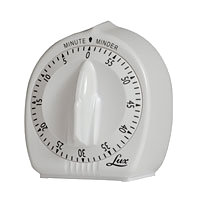 of the timer.
of the timer.
After you've done this (and you can do it as often as you like), try this:
Look back over your Automatic Writing. Underline or circle whatever word, sentence, or image seems most interesting to you– not the best written necessarily, but just what catches your attention. Copy or type this on a fresh piece of paper, set the timer again, and write again. Go wherever that phrase, image or idea leads you. This is sometimes called Directed Free Writing.
Exercise #108
Here in a passage from Barbara Kingsolver's novel The Poisonwood Bible in which a young teenage girl from Georgia talks about herself and her past. The time is 1960:
....In the first place I am flat-chested, just plain too skinny. When [my twin sister] Adah and I got moved up two grades, it just made things that much worse. We were preacher's daughters to begin with, and now we were really onions in the petunia patch, amongst all those ninth-grade girls with flirty eyes and foundation makeup and bosoms poking out the fronts of their mohair sweater sets. No boy ever looked at me except for homework help; And to tell the truth, I can't say that I care. Kissing looks like too much of somebody else's dental hygiene if you ask me. If you want to see stars – which is what [my oldest sister] Rachel says it's all about – then why not just go climb up a tree in the dark?
Try writing a similar passage in the voice of a young teenager-- yourself at that age or a character of a different gender or background. Try as you write to be very specific as to when the teenager is living and perhaps also where.
Exercise #109
The mystery/crime writer Elmore Leonard has created a list of Ten Rules of Writing that I think fall somewhere between brilliant and hilariously wrong-headed. For example, "Never open with the weather," or "Never modify the verb 'said' with an adverb" or "Never use the world 'suddenly.'"
I understand that "It was a dark and stormy night" is a cliché, but that doesn't mean there isn't some way of beginning a story or a memoir with weather: "I remember summer in West Virginia as always green and damp..." I don't know if that's the best line I ever wrote, but it evokes the mood I'm trying to create. Take a look at Leonard's rules, which are admittedly aimed at genre writers, and then try this exercise:
Choose one of Elmore's rules, and break it! Write a passage that breaks the rule, but breaks it successfully! In other words, go ahead and begin with the weather, but make it so interesting that I can't stop reading....
Exercise #110
Think of a belief or opinion that seems to be about the exact opposite of your own. This can be very serious or less so. The assignment is to write a monologue trying to convince someone of this opinior or belief that is the opposite of your own. A light version would be, if you can't stand the thought of eating raw fish, to write a passage in praise of the fresh taste of sushi. A more serious version would be, If you are a committed anti-war Democrat, to write a passage about the positives of the Iraq War.
What you don't want to do is write a parody--that is a different assignment. For this assignment, try seriously to take this opposing position to your own.
Exercise #111
Fall is beginning In the Northeast. Here, the change of seasons is regular and spectacular. As I write this, for example, on my back porch, it is just a little while before the leaves change, and the trees have a particular dullness to their green that is enlivened by gold and bronze of a fine sunny day.
Do a little research or use your memory if you have traveled a lot, and write a scene in which you or a character are in a part of the world where the seasons are very different from where you live. For example, if you live in California, imagine Vermont in October. If you are reading this in Vermont in ski season, imagine a tropical climate, maybe El Yunque rainforest in Puerto Rico.
If you are already engaged in a story or novel, try moving a scene to a different season or climate. If you are writing a memoir, write about a time you were somewhere where the very atmosphere had a different quality.
See what effect the weather has on your writing.
Exercise #112
The wonderful short story writer and political activist Grace Paley died a few weeks ago. Try using some of her short story titles as prompts. That is, write the title that appeals to you at the top of your page, then write whatever comes to you, fiction, or nonfiction, or poetry. Try it even if you know Paley's work, but don't re-read the stories until you've tried a piece of your own:
Time Which Made a Monkey of Us All
Dreamer in a Dead Language
The Expensive Moment
A Conversation With My Father
A Man Told Me the Story of His Life
The Story Hearer
Exercise #113
Do an imitation of this crowd scene from James Joyce's long story "The Dead" found in Dubliners. When I say Imitation, I mean to use your own materials-- a party you attended at your friend's, a sports event, a family Thanksgiving dinner, or maybe a scene in a restaurant or bar. Imitate by putting in a lot of action that you speed up by not using many commas, and having a lot of noises of people talking and glasses clinking or whatever. Try to make the scene move fast, and then slow it down at the end. Notice how Joyce uses commas to do this: very few in the first three-fourths and then a lot of commas at the end:
Notice how Joyce uses commas to do this: very few in the first three-fourths and then a lot of commas at the end:
While Gabriel and Miss Daly exchanged plates of goose and plates of ham and spiced beef Lily went from guest to guest with a dish of hot floury potatoes wrapped in a white napkin. This was Mary Jane’s idea and she had also suggested apple sauce for the goose but Aunt Kate had said that plain roast goose without any apple sauce had always been good enough for her and she hoped she might never eat worse. Mary Jane waited on her pupils and saw that they got the best slices and aunt Kate and Aunt Julia opened and carried across from the piano bottles of stout and ale for the gentlemen and bottles of minerals for the ladies. There was a great deal of confusion and laughter and noise, the noise of orders and counter-orders, of knives and forks, of corks and glass-stoppers. Gabriel began to carved second helpings as soon as he had finished the first round without serving himself. Everyone protested loudly so that he compromised by taking a long draught of stout for he had found the carving hot work. Mary Jane settled down quietly to her supper but Aunt Kate and Aunt Julia were still toddling round the table, walking on each other’s heels, getting in each other’s way and giving each other unheeded orders. Mr. Browne begged of them to sit down and eat their supers and so did Gabriel but they said there was time enough, so that, at last, Freddy Malins stood up and, capturing Aunt Kate, plumped her down on her chair amid general laughter.
Exercise #114
Write the story of a celebratory family meal: this could be a happy, typical event with lots of tradition and support, or it could be a disaster waiting to happen-- or a disaster than actually happens! Be sure that the mean is described.
Exercise# 115
Write another meal, in which the discussion is, on the surface, about food-- maybe techniques for cooking, or past meals people are reminded of-- but include a subtext. That is, the people are also talking about something they aren't saying directly-- trying to get a child with an eating disorder to eat more, or perhaps one person wants to become more intimate and the other person is trying to keep this from happening.
Exercise # 116
I've still got holidays on the brain. Try this: Think of some explicitly holiday-associated object or other thing. This is great as a starter for a happy memory, but it may work even better if, for example, your group feels overwhelmed by the paraphernalia of some other group's holiday.
The thing you choose can be concrete, like a fruitcake or a paper snowflake or a box of hot pink Christmas tree balls (or, for that matter, a wooden dreidel)-- or it might be something immaterial like a song or a scent. First, close your eyes and imagine the thing in detail, then write the description at some length. Finally, let the description lead you into your memories and feelings about the thing and perhaps about the holiday as well.
Exercise # 117
Have a character you are writing about-- or a person you don't know who interests you (the man who works in your local gas station, the old woman who walks around town pushing her possessions in a shopping cart) -- or, if you are writing a memoir, yourself at some precise age, say seventeen or twelve-- think about and write a list of New Years Resolutions. The list can be the main thing here, or it can be the person thinking about how they hate lists and promise never to write one, or anything else that comes to mind with Resolutions.
Two Special Exercises about Endings
Here's an exercise for stories and personal narratives from story teller/writer Norah Dooley. (For more on Norah, see her blog at http://norahdooley.blogspot.com// . She is also the host of the Folk Revival Program on WICN radio.) Norah says,
How about...3 different endings?
Look at literature and analyze how any book...ends.
Generate a list like the one below or use the list without this step
or use it to organize what you find in literature.
The 3 new endings one writes can sometimes
be combined into one or you may hit on an ending you would never have
thought of without the mechanistic prompts....Rewrite your ending 3 times by adding or substituting 1 of the below:
a new bit of action...
some of the character’s thoughts--
a feeling, a wish or a hope
a comment on what has changed or is different
a memory
a decision
end with a sound, a sight, a smell or a taste.
describe the main character in action
describe a minor character observed or observing
a dialogue
And here's another exercise about endings, this one compliments of Christopher Vera (see his website at http://www.mysticnebula.com/). I especially like his analogy to a painter painting a canvas from left to right.
Christopher says: Write the ending first. It often helps to know where one is going before one starts on a journey. Of course, as the story progresses, the ending may change, but this is perfectly acceptable and even encouraged! Writing anything -even short stories- is difficult to do if one attacks the story linearly...from beginning to end. Creativity doesn't always work that way. It would be like a painter painting a portrait from left to right. Its often easier to break up writing into smaller chunks. This helps set realistic goals and reduces frustration. This becomes especially relevant in novel length stories and screenplays.
Exercise # 119
Visualize a person walking. This might be a character in a story you've already started or or someone you remember from long ago who interests you. In memoir, it might be your father after work or your mother on her way out to a party. Focus on the action itself: does the person swing arms or take a half-hop? Do the feet come down heavy or lightly? You might go from this to a full description or portrait, if you find yourself drawn that way.
Exercise # 120
More Ending Exercises
Exercise 118 below has some great ideas for thinking about how to end a piece from Norah Dooley and Christopher Vera. Thinking about their ideas, I came up with another set of "ending" ideas, which are in a way less about how to end a piece and more-- maybe-- about how to think of it as a whole:
-
End your piece with the main character alone and thinking. Describe the place where the character is and then go into the person's head.
-
End with a dialogue (Norah Dooley also suggests this) with the main character and some others talking, maybe about the events that just happened, maybe about the future. .
-
End with a description of an object. As movies sometimes at the end pan away from the person to a vaguely emblematic object (sleeping cat? discarded newspaper flopping in the breeze?) or zoom out to the house or the car where the person is, try an ending that is a description of an an object.
Subscribe to Meredith Sue Willis's Free Newsletter
for Readers and Writers:
Send email to MSW
New Book Deal!
Special Price on Meredith Sue Willis's new book of stories from myths and other stories: Re-Visions. Regular Price $14.95 plus S&H now $13.00 plus S&H.
Click on the Book or here.Re-visions: Stories from Stories is a collection of spin-offs from myth, fiction, and the Bible. From a new look at Adam and Eve and why they left the Garden to a grown-up Topsy from Uncle Tom's Cabin to the confessions of SaintAugustine's concubine- each story offers a gloss on the original as well as insights into how we canlive today.
Photos found on the various pages of this web site may be used by anyone,
but please attribute the source when it is specified.
This work is licensed under a Creative Commons Attribution-NonCommercial-ShareAlike 3.0 Unported License.
